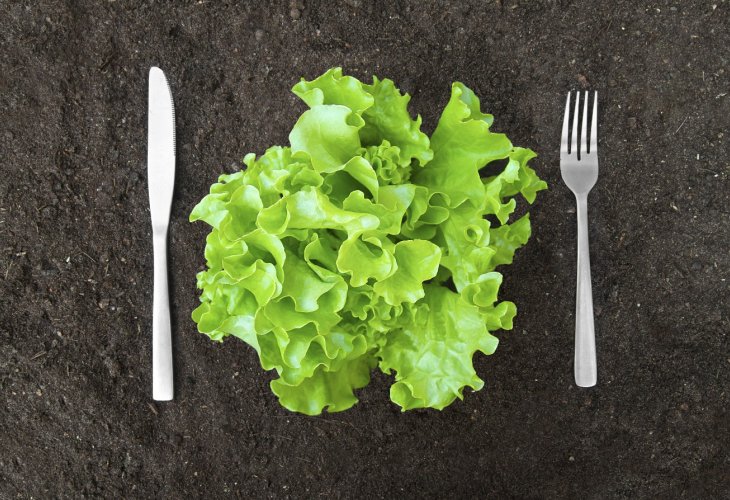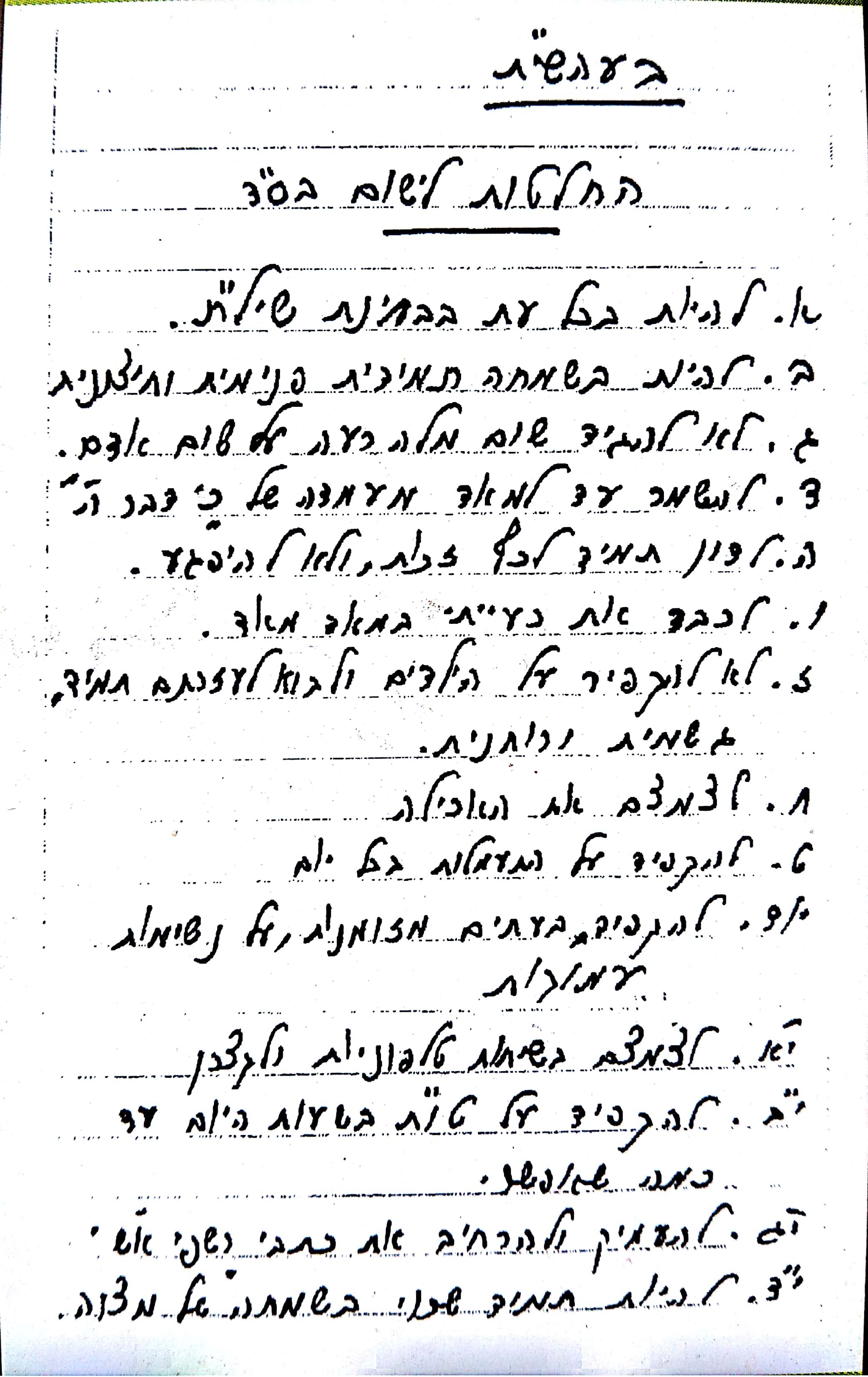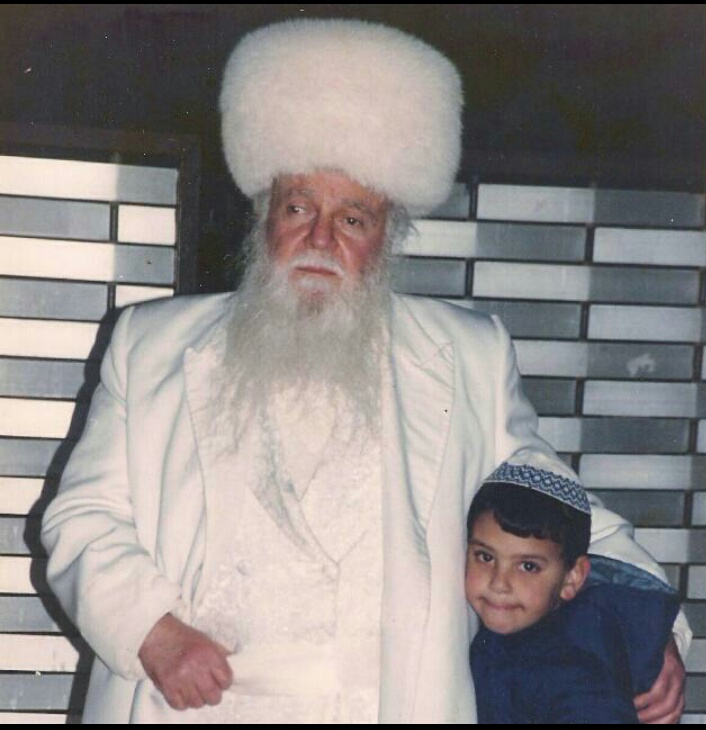"I Yelled 'Grandpa!' and Suddenly It Became Quiet at the Wall": Adiel Gatz, Grandson of the Rabbi of the Wall, Shares His Story
Adiel Gatz grew up in the home of his grandfather, the Rabbi of the Wall, Rabbi Meir Yehuda Gatz. In a nostalgic and touching interview, he shares: "Grandpa had great courage and self-sacrifice. He did not care about himself, only the truth."

When Adiel was only ten days old, his father Yair was killed when an Arab truck driver hit his vehicle. Initially ruled as a traffic accident, the incident later was understood to be a terror attack. Despite this understanding, the family was unable to garner recognition from the state, as such events were thought impossible at the time. Since then, the young Gatz family would visit the home of Rabbi Meir Yehuda Gatz every week, where Adiel grew up as a son.
"After my father's death, we lived for two years next to my grandparents in the Jewish Quarter. Later, when we moved away, we continued visiting them for almost every Shabbat and holiday. Until Grandpa's passing, I don't remember a single holiday spent with my maternal grandparents. They were so embracing and loving," Adiel recounts. "As children, we would roam the rooftops of the Old City and circle all of ancient Jerusalem on the walls. Grandpa would take us with him to the Western Wall tunnels, and we were present at every excavation."
Recalling experiences alongside his grandfather, he shares: "I would see Grandpa sitting and studying in the synagogue he established in the Western Wall tunnels, opposite the Holy of Holies. Grandpa would sob while reciting Tikkun Chatzot, praying for all of Israel. I'd sit beside him, then, in the middle of the night, retire to bed while he continued studying Torah until dawn."
 Personal photo of the rabbi
Personal photo of the rabbi
"I Don't Eat Dogs' Leftovers"
Rabbi Meir Yehuda Gatz, born in Tunisia and a descendant of the Or HaChaim, stood out early on as having a special soul. "When Grandpa was five," Adiel relates, "he dreamt of an elder in white who yelled at him in Arabic to study the Zohar. Initially dismissed by his parents, their seriousness grew as the dream repeated, realizing it to be real. They sent Grandpa to the Chief Rabbi of Tunisia, who appointed a scholar to study Torah with him."
At seventeen, with the Nazis having invaded his city, Rabbi Gatz was forced into labor camps. "In Grandpa's camp, food was not provided to Jews who relied on aid from the local Jewish community," Adiel describes. "One day, when the food shipment was robbed, the workers went hungry. At day's end, the Nazis threw scraps onto the ground, and hungry Jews pounced on them. Grandpa walked back and forth, head held high, refusing to eat. A German soldier asked, 'Why don't you eat?' Grandpa replied, 'I don't eat dogs' leftovers.' The soldier aimed his gun at Grandpa's head. Ready to die for the sanctity of Hashem's name, Grandpa began the Shema Yisrael prayer. Upon opening his eyes, he found the gun holstered and the soldier stating, 'Pity you're not a German.'"
Adiel details his grandfather's escape from the camp: "One night, Grandpa fled and soon encountered his German officer. Spotting a shovel, he struck the officer and fled to a cave, awaiting nightfall. Gazing up at the full moon, he realized it was Tu Bishvat. He vowed that if he survived the war, moved to Israel, and started a family, he'd celebrate Tu Bishvat lavishly each year."
Adiel recalls as a child seeing an elaborate Tu Bishvat table at his grandfather's house: "At that time, exotic fruits like carambola, pitaya, or cherimoya were unknown, yet Grandpa procured them all."
Post-war, Rabbi Gatz married and became a rabbi in Tunisia before being sent to France to establish a transit station for North African youths bound for Israel. "Every ten- to eighteen-year-old passed through his care," Adiel describes, "Grandpa provided for all their needs, becoming a father figure. He organized Bar Mitzvahs, ensured all had tefillin, arranged prayers, and taught them Torah."
Two years later, Rabbi Gatz immigrated to Israel. "Grandpa wished to establish a new settlement, learning of new immigrants creating a small village near Meron," Adiel describes. "Upon visiting, he discovered the tomb of Rabbi Yossi ben Zimra, memorializing it in naming the settlement Kerem Ben Zimra, becoming its rabbi and later, rabbi of the entire Dalton region."
During the Six-Day War, near Jerusalem's walls, Rabbi Gatz's son Avner died in battle. Wishing to be near his son's grave, the Gatz family moved to Jerusalem. "Previously," Adiel notes, "Grandpa began attending Rabbi Ovadia Hadaya's Kabbalist Yeshiva in Jerusalem. After the Old City was recaptured, he asked Rabbi Ovadia to bring the yeshiva back to the Jewish Quarter, from which it was ousted in the War of Independence. Rabbi Ovadia declined, saying to Grandpa, 'The Beit El Yeshiva is now yours to rebuild.' Grandpa tirelessly fundraised, rebuilding the yeshiva with original stones, a process taking years, seeing it completed a week before his passing."
With the yeshiva's construction, the Gatz family resided in the Jewish Quarter, becoming its first Jewish residents. "They moved into the Talmud Torah building facing the yeshiva, initially without utilities, flooring, or plumbing. Water was drawn from a central cistern, and access to markets required travel to the Machane Yehuda market, while Arabs predominated the area."
Regularly visiting the Western Wall, Rabbi Gatz, beloved and recognized, responded when a newspaper announced a mixed-gender Rosh Chodesh service by Reform Jews. "Approaching the custodian of holy sites," Adiel recounts, "revealed no legislation prevented such gatherings. Unyielding, Grandpa printed with his own funds a call in protest, inviting Jerusalemites for a mass prayer. The large turnout altered the Reform plans."
Adiel humorously notes, "We must thank the Reform community, as Grandpa's devotion led to his appointment as Rabbi of the Wall."
Serving with dedication until his passing, Rabbi Gatz initiated Western Wall Tunnel excavations. "An uncovered sealed gate prompted Grandpa to consult the Lubavitcher Rebbe, who advised leaving it untouched," Adiel recounts. "Years later, a niche was attempted for a synagogue Ark of the Covenant, but unforeseen, the wall collapsed, revealing a large cave. Upon consulting the chief rabbis, permission was granted to explore, secretly clearing it over seven weeks, later exposed in the press, causing an uproar, halting work with the gate resealed."
 Photo of Adiel and the Rabbi during Chanukah
Photo of Adiel and the Rabbi during Chanukah
"I Ran to Grandpa and Hugged Him"
Asked for personal stories from his grandfather's household, Adiel readily shares: "Before Passover, Grandpa hid money around the house as a reward for thorough cleaning. The treasure hunt incentivized constant cleaning efforts."
Adiel highlights his grandfather's emphasis on observing commandments: "For the Mitzvah Matzo baking, every family member over thirteen participated, in a heartfelt, meticulous process. One incident, my youthful unauthorized entrance wielded a fork to pierce waiting matzos. Hands quickly pulled me outside."
He describes their bond: "During Chanukah, Grandpa lit candles at sunset, then rushed to the Wall for another ceremony. We kids had our own candle-stand by each window, before joining the Wall festivities. One year, arriving late, I squeezed through the crowd to an unyielding gate guard. Eyeing him defiantly, I shouted 'Grandpa!' Silence fell, eyes turned to the source, and Grandpa signaled the guard, granting access. I ran, embracing Grandpa."
Finally, what do you take from your great-grandfather for your own life?
Reflecting, Adiel responds, "Everything, from A to Z," continuing, "His marriage, parenting, human relations, and Torah dedication. His tireless Torah study, where discovering an error meant starting over."
"He demanded rigorous self-improvement," Adiel adds, "once recording 72 straight hours of work at the Wall on personal reflection. Yet, accommodations for others, innovatively maintaining harmony, were his imperative."
"His dedication to truth, indifferent to consequences, is my biggest takeaway," Adiel concludes.

